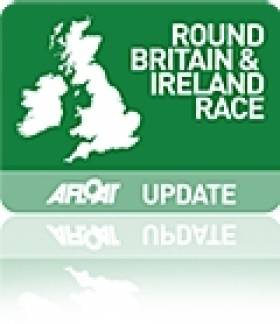Displaying items by tag: St Kilda
Leopard Seeks Round Britain and Ireland Record
ICAP Leopard's crew will be made up of the usual collection of established ocean racers, including leading solo round the world sailor Sam Davies, who currently holds the monohull course record of six days, 11 hours, 30 minutes and 53 seconds. Sam broke the course record with fellow round the world sailor Dee Caffari aboard the IMOCA 60 Aviva in 2009. This year sees a highly competitive fleet, including Telefonica Azu's VO70 and the IMOCA 60 Artemis Ocean Racing, meaning the crew will need to push the boat hard to ensure line honours.
Mike Slade, commented: "Once again we have a great team onboard for this classic offshore race. Sailing around Britain and Ireland produces some of the most complex weather systems in the northern hemisphere, so we'll have to be on our toes to ensure we give ourselves a chance at beating the record."
Sam Davies, revered round the world sailor, said: "As current course record holder and having sailed the Sevenstar Round Britain and Ireland Race a number of times before, I cannot wait to get started. The nature of sailing around an island means that the weather systems are not consistent in direction and therefore produce very changeable weather. This makes it all the more challenging and one of the most interesting offshore races around."
Starting on the Royal Yacht Squadron line in the Solent, ICAP Leopard will head out of the Solent and along the South Coast, past Bishop Rock before heading north into the Celtic Sea. Leaving Ireland to starboard, the journey will then see the boat begin a 230 mile open water leg past St Kilda and the Flannan Isles. Through changeable and challenging weather conditions, the boat will continue around the Outer Hebridies, past Muckle Flugga and then down the East of the Britain. Having dodged the busy shipping lanes and oil rigs in the North Sea, the crew will undertake a final push past Dover finishing at the Royal Yacht Squadron line.
http://www.leopard3.com and follow the link to the Round Great Britain & Ireland Race pages.





























































